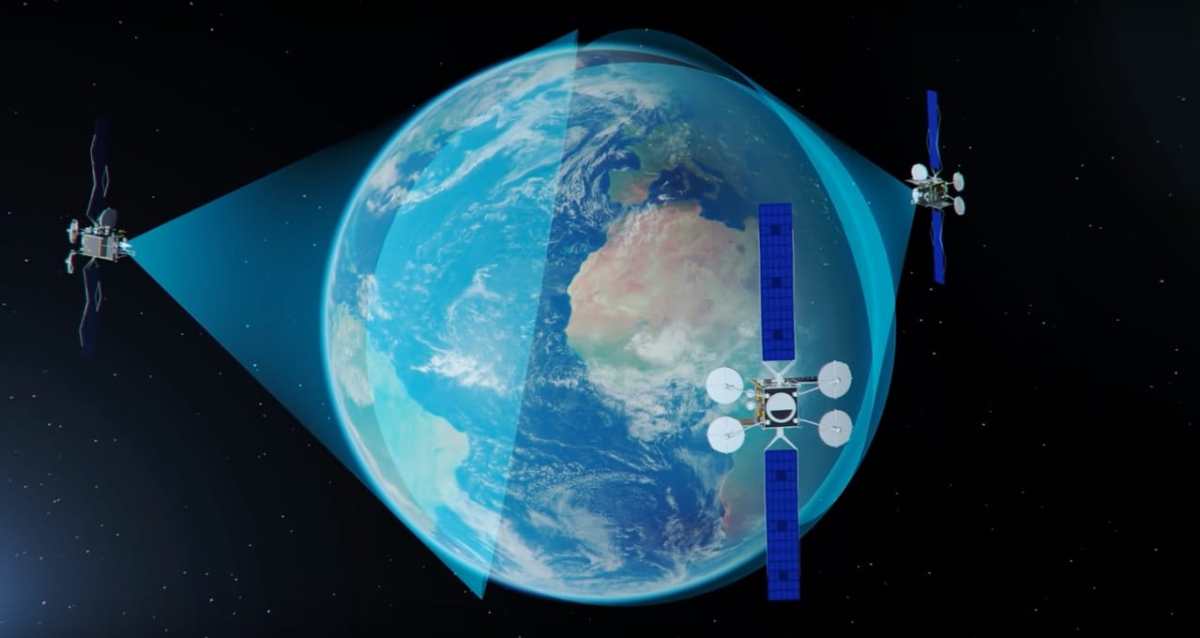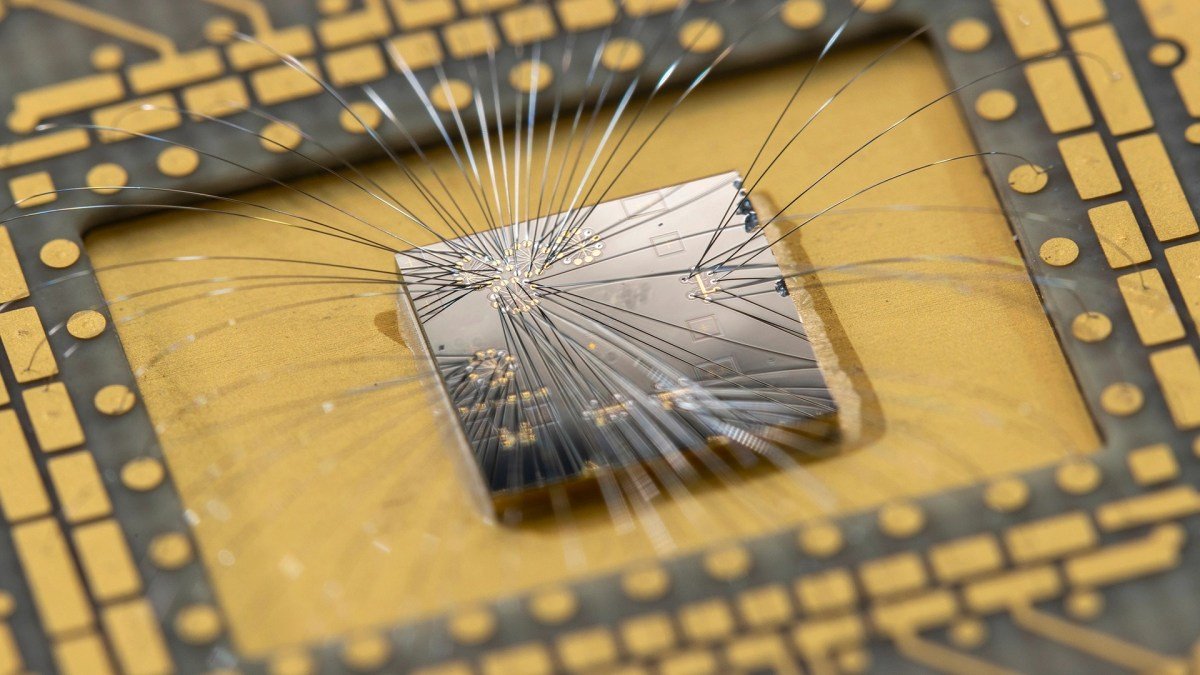## Is Amazon About To Launch a Game-Changer?
Get ready, gamers, because the battle for your attention in the cloud just got a whole lot more interesting. Amazon’s already making waves with its Luna gaming service, but now they’ve pulled in a heavyweight from the telecommunications world.

Project Kuiper: Revolutionizing Gaming Through Satellite Broadband
Amazon’s Ambitious Vision

Amazon’s Project Kuiper is an ambitious undertaking aimed at providing global broadband access through a constellation of over 3,200 low-Earth orbit satellites. This ambitious project has the potential to revolutionize numerous industries, but for gamers, the implications are particularly exciting. The promise of fast, reliable internet access to underserved communities worldwide could democratize online gaming, opening up a world of new possibilities for players.

Bridging the Digital Divide
Currently, millions of people around the world lack access to reliable high-speed internet, effectively excluding them from the global online gaming community. Project Kuiper aims to bridge this digital divide by providing broadband access to even the most remote regions. Imagine a world where gamers in rural areas, developing nations, or disaster-stricken zones can seamlessly connect and participate in online multiplayer experiences.
The Impact on Gaming Latency and Connectivity
Latency, the delay between a player’s action and the game’s response, is a critical factor in online gaming. High latency can result in lag, making gameplay frustrating and unfair. Project Kuiper’s low-Earth orbit satellites are designed to minimize latency, ensuring a smoother and more responsive gaming experience. This could be particularly beneficial for competitive gamers who rely on split-second reactions.
Challenges and Competition
Regulatory Hurdles and Spectrum Allocation
Project Kuiper faces significant regulatory hurdles, including securing approvals for its satellite launches and operations. The allocation of spectrum for satellite broadband services is a complex and often contentious process, involving negotiations with governments and other satellite operators.
Technical Complexities of Satellite Deployment and Maintenance
Deploying and maintaining a vast constellation of satellites is a technically demanding undertaking. This involves challenges such as precise satellite positioning, collision avoidance, and the efficient management of ground stations. Ensuring the reliability and longevity of the satellite network is crucial for Project Kuiper’s success.
Competition from Existing Satellite Internet Providers
Project Kuiper enters a competitive landscape dominated by established players like SpaceX’s Starlink. Starlink has already launched thousands of satellites and is rapidly expanding its customer base. Competing with Starlink’s existing infrastructure and user base will be a significant challenge for Project Kuiper.
Beyond Gaming: Project Kuiper’s Broader Reach
Enabling New Technologies and Applications
Project Kuiper’s high-speed, low-latency broadband access has the potential to enable a wide range of new technologies and applications beyond gaming. This includes:
- Remote Healthcare: Providing access to telemedicine services in remote areas, enabling patients to consult with doctors and receive medical care without physically traveling.
- Education: Expanding access to online learning resources for students in underserved communities, bridging the educational gap.
- Disaster Relief: Providing critical communication and connectivity in disaster-stricken areas, enabling rescue efforts and coordination.
- Privacy: Ensuring the privacy and security of user data transmitted through the satellite network is paramount.
- Security: Protecting the satellite network from cyberattacks and other security threats is crucial for its reliability and safety.
- Impact on Existing Infrastructure: The potential impact of Project Kuiper on existing terrestrial telecommunications infrastructure needs to be carefully assessed and managed.
Economic Benefits and Job Creation
Project Kuiper is expected to create thousands of jobs in various sectors, including satellite manufacturing, ground station operations, software development, and customer service. The increased connectivity enabled by Project Kuiper can also stimulate economic growth by enabling new businesses and industries to emerge.
Ethical Considerations and Potential Impacts
The deployment of Project Kuiper raises several ethical considerations, including:
Conclusion
The gaming world is about to get a whole lot more connected, thanks to the surprising move of T-Mobile veteran, Callie Field, to Amazon’s Project Kuiper. Field, known for her prowess in building out T-Mobile’s network infrastructure and fortifying its brand positioning, is now set to bring that same expertise to Project Kuiper, Amazon’s ambitious project to launch a constellation of low-earth orbit satellites providing global broadband internet access.
This shift signifies a potential game-changer in the landscape of online gaming. Imagine a world where lag is a distant memory, where everyone, regardless of location, can experience seamless online gaming. Field’s arrival at Project Kuiper suggests that this vision is becoming a reality. With her experience in building robust networks and understanding user needs, she’s poised to accelerate Project Kuiper’s development and make high-speed, reliable internet access a universal right, ultimately leveling the playing field for gamers around the globe. This isn’t just about faster download speeds or smoother gameplay; it’s about democratizing gaming and unlocking its full potential for a truly interconnected future.
The future of gaming is about to get a whole lot more equitable, and Callie Field’s move to Project Kuiper is a powerful testament to that. The world is watching, and the game is on.